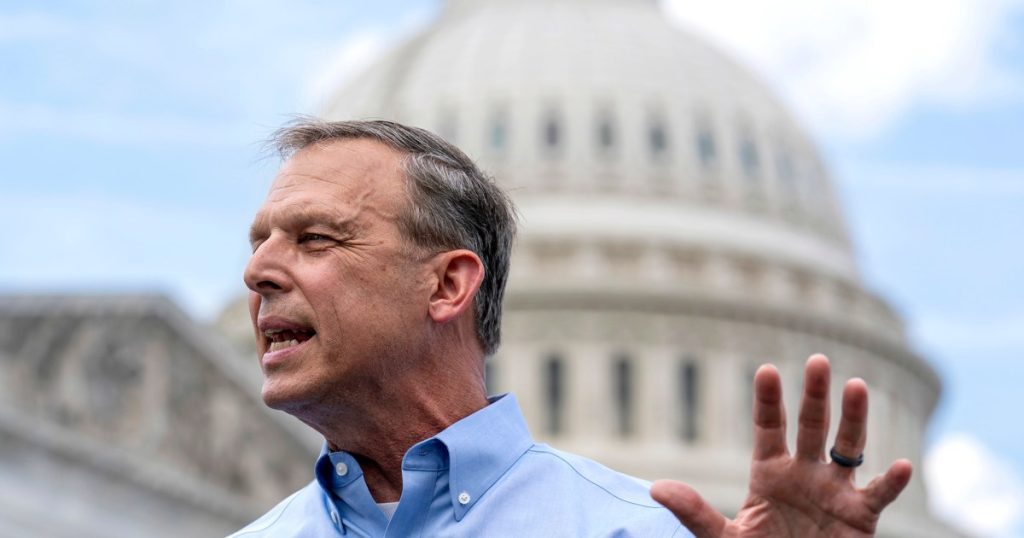Scott Perry’s Fiscal Dilemma
Rep. Scott Perry, a Republican and former chairman of the House Freedom Caucus, has long been critical of the growing national debt and deficits, labeling it the “bankrupting of America.”
Contradictions in Voting
However, Perry faces scrutiny after supporting President Trump’s significant spending bill, projected to increase deficits by over $4 trillion in the coming decade. His opponent, Janelle Stelson, a likely Democratic challenger, remarked, “He claims to be a fiscal conservative, yet this is $4 trillion of new debt,” warning that future generations will suffer the consequences.
Democratic Candidates Rally
Stelson is not alone; various Democratic challengers are capitalizing on accusations of rising deficits against vulnerable Republicans, which had previously been a pivotal issue for the GOP since the Tea Party movement.
Attacks Across the Nation
In Wisconsin, Rebecca Cooke criticizes GOP Rep. Derrick Van Orden for contributing to national debt, while Christina Bohannan in Iowa blasts Rep. Mary Miller-Meeks for her vote tied to a debt increase. In New Jersey, Rebecca Bennett targets Rep. Tom Kean Jr., claiming his actions have negatively impacted local families.
Republican Defense
Republicans argue that the Congressional Budget Office’s $4 trillion figure is exaggerated and suggest that the bill’s revenue would ultimately bolster economic growth. Rep. Young Kim, a vulnerable Republican, insists that the legislation is intended to reduce the deficit over time, criticizing Democrats for their handling of previous debt increases.
Perry’s Justifications
In two interviews, Perry expressed dissatisfaction with the legislation’s impact on the deficit, explaining that compromises are necessary in Washington. He claims to have made amendments that reduced costs and insists that the Trump tax cuts should offset negative effects.
Political Landscape and Implications
The upcoming Pennsylvania congressional race is expected to draw significant attention, especially after Perry narrowly defeated Stelson in 2024. As accusations of hypocrisy circulate among Republicans, challengers like David Schweikert face their own struggles in defending their fiscal records while navigating the complexities of bipartisan legislation.



